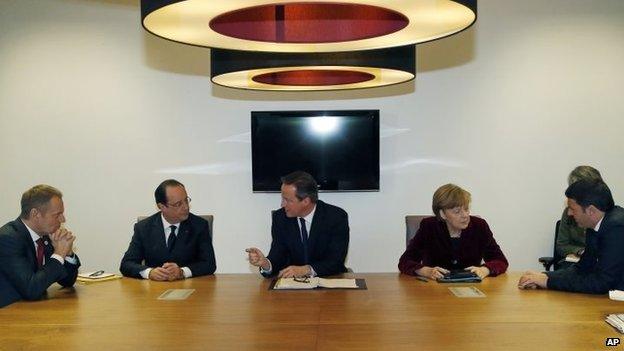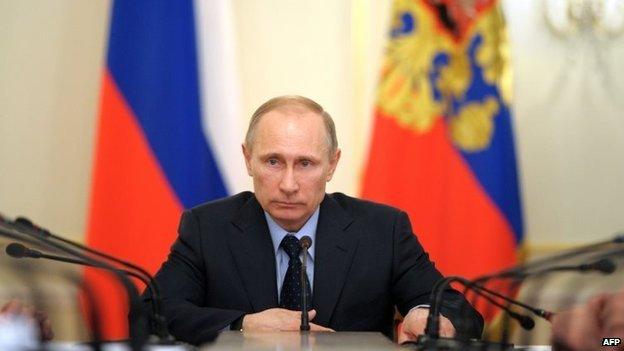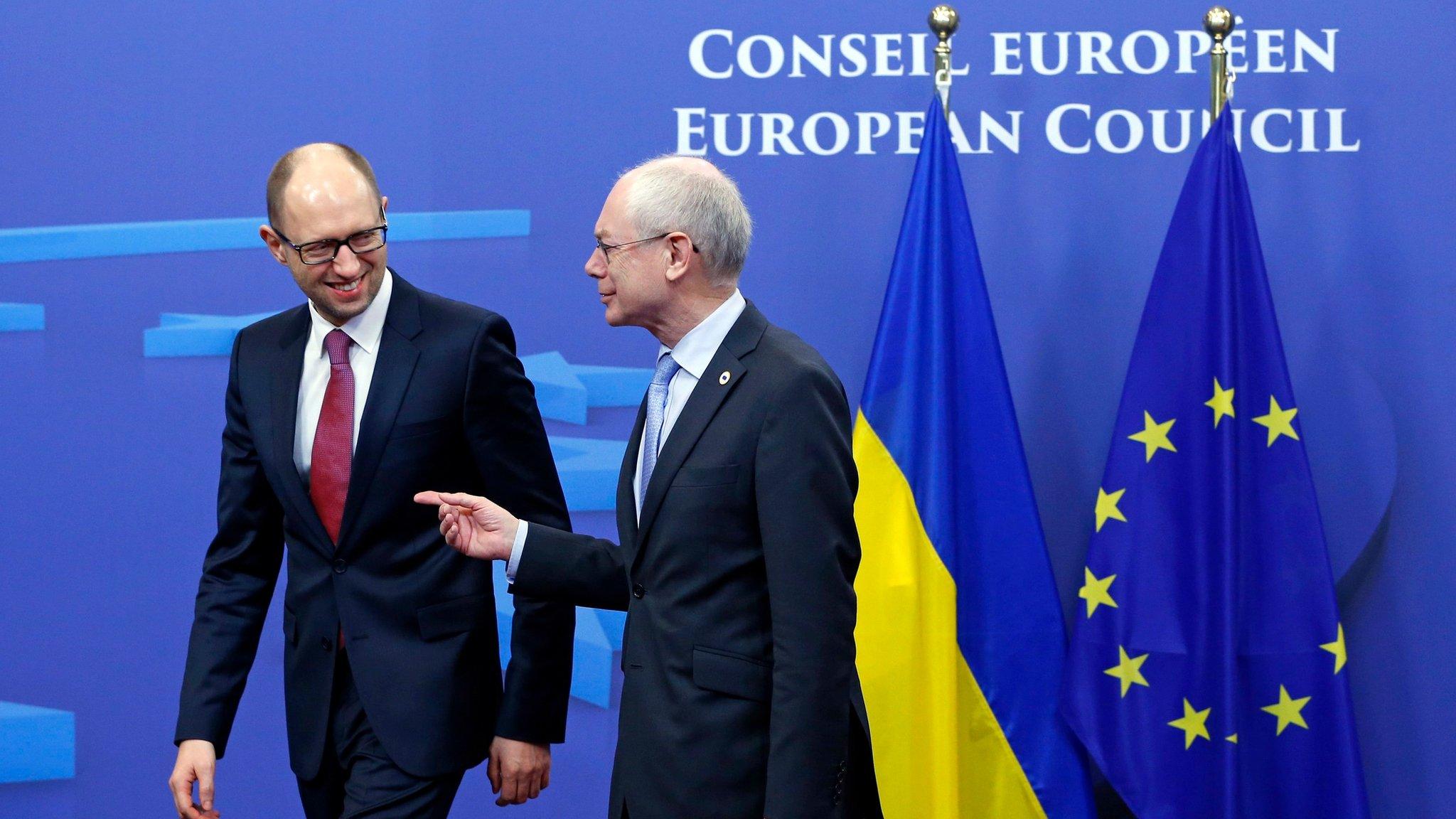Ukraine crisis: Europe's leaders are haunted by history
- Published

EU leaders are holding an emergency meeting in Brussels to discuss how to respond to Russia's troop deployment on Ukrainian soil
Europe's leaders, meeting to address Russia's takeover of Crimea, are haunted by history. The problem is that it's a different history that preoccupies each of them and hinders the search for consensus.
For British politicians there are undercurrents of appeasement, 1930s style, a parallel drawn directly by Sir Malcolm Rifkind earlier this week. Hillary Clinton too has invoked the comparison with Nazi Germany's behaviour.
Sir Malcolm argued that the 1938 Munich Agreement, under which Britain and France sold out the Czechs comes to mind because it was, "the last time the alleged need to protect ethnic brethren was used as a justification for invasion".
However, when I asked Dalia Grybauskaite, President of Lithuania, as she arrived at the special EU Summit on Thursday whether history, 1930s style, was being repeated, she replied "yes," and then immediately invoked the memory of 1940, when her republic, independent during the inter-war years, was invaded by the Soviet Union as part of a different international stitch up, the Nazi-Soviet Pact. For her, Mr Putin's action in Ukraine is, "very much behaviour like in Stalin's times".
If the comparisons with Hitler or Stalin are too emotive, too crass perhaps, for many of the 28 EU leaders convened here, there are others available too. Fredrik Reinfeldt, Sweden's prime minister, mentioned Russia's actions of the recent past in Moldova and Georgia when we spoke earlier.
Certainly, for Russia, it is recent history, 1991 and the collapse of the Soviet Union that rankles most deeply and which its leaders have tried, when opportunities presented themselves, to reverse. This is the type of action that Mr Reinfeldt was referring to, where Moscow carved out enclaves of Russian speakers in "independent republics," in Moldova and Georgia.
For the Swedish leader the danger of such actions is that it leaves "frozen conflicts," where the wider world refuses to recognize the legitimacy of these ethnic enclaves and their people remain trapped in a kind of international limbo. The spectre of something similar happening now increased dramatically as the EU leaders sat down to talk, with news that the local parliament in Crimea had voted for union with Russia.
Sanctions
In the disagreement over how the EU should respond to these fast-moving events, those taking the toughest line - namely Poland and the three Baltic republics - are those obsessed with the comparisons not just with Stalin but the deeper memory of living next door to Imperial Russia.

The Kremlin says President Putin is aware of developments in the Crimean parliament
Those who oppose the immediate imposition of sanctions, principally Germany, Italy and the Netherlands, are not united around a similar sense of history - far from it. However, the invocation of comparisons with Hitler's policies in exploiting the status of German-speaking minorities in surrounding countries is particularly offensive to the political elite speaking that language today, for whom the lessons of the Nazi past inhabit a uniquely sensitive space and who also find it fiendishly hard addressing the Stalinist comparison.
It is perhaps the acknowledgement of this continued wound that leads the Swedes and some others here to reach for comparisons with a more recent past or to insist that today's events are altogether different to those that preceded them.
The anti-sanctions camp also includes countries, and one would have to put the UK among them, where the feeling is that economics trumps history. How long this line can be maintained, as Russia tightens its grip on Crimea and threatens to consume other parts of Ukraine, is open to question.
The idea that the European Union is here to bury the conflicts of history remains a powerful political totem - that's why the organization was awarded the 2012 Nobel Peace Prize after all. But faced with an intense crisis like Ukraine's its members cannot in fact forget the invasions, annexations, and provocations of the past.
Whereas the Euro crisis exposed a north-south fault line in the EU, in security issues we can see today that the schism runs east-west. It is those countries that have suffered by their proximity to Russia that today seek to drive Western policy, and in fact it is they who called the key Nato and EU meetings in Brussels this week.
With each new step against the Ukrainian provisional government by Vladimir Putin or Russian-speaking extremists it will become harder to argue with their view that a particular kind of history is repeating itself.
- Published6 March 2014

- Published6 March 2014
- Published6 March 2014